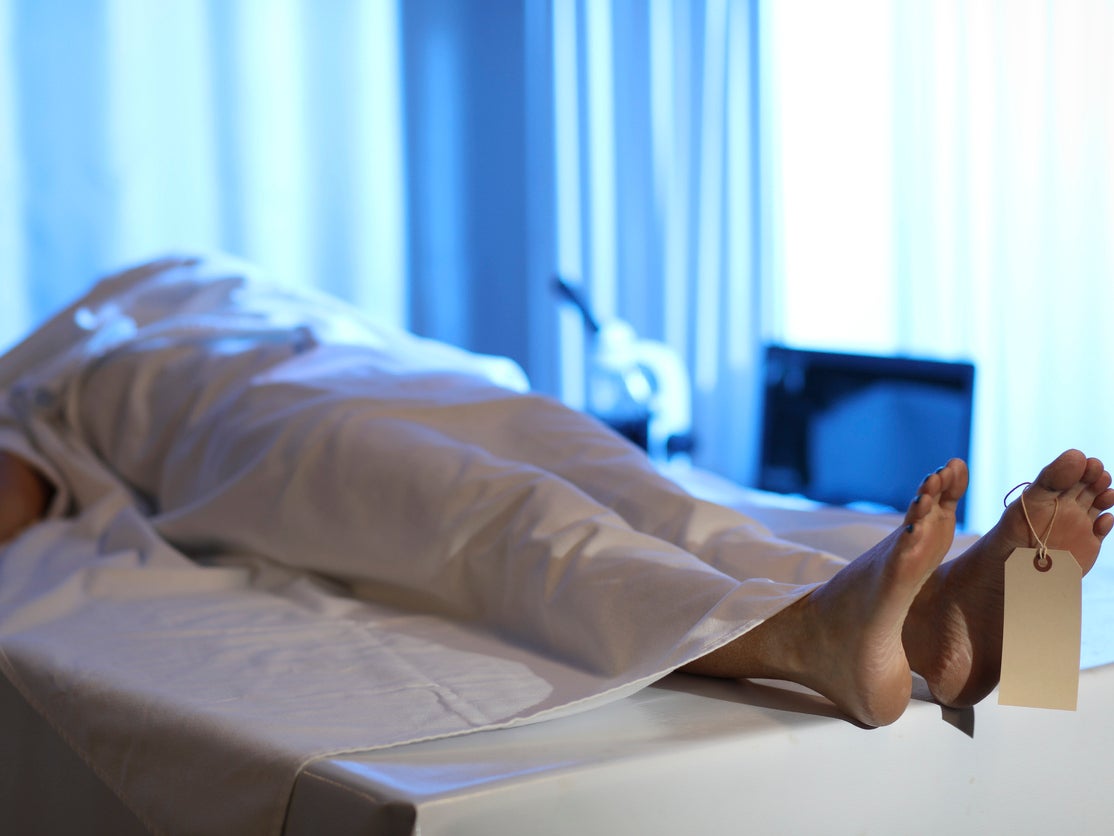Body parts company secretly sold corpses for military explosives testing, court told
‘Trust is what they feed on,’ says man whose mother’s body was blown up by army

A company handling dead bodies that were donated for medical research secretly sold them on for military explosives testing, a court has been told.
Bosses at the now-shuttered Biological Resource Centre (BRC), in Arizona, are accused of fraud by misleading families as to how their loved ones’ remains would be used in at least two cases.
The lawsuit also alleges that donor families who were promised the cremated remains of relatives received boxes with what they thought were their loved ones, but later discovered the bodies had been sold to third parties or were still at the facility. They are seeking unspecified damages.
On Monday, a court was told that during an FBI raid on the centre in 2014, agents discovered a table stacked with severed human legs, heads in a refrigerator and a torso with a head from another body sewn on.
Mark Cwynar, a retired FBI worker, compared the scene to Mary Shelley’s Frankenstein. “Some individuals refused to go back in,” he told the civil trial.
BRC owner Stephen Douglas Gore pleaded guilty in October the following year to a felony charge for his role in mishandling donated body parts.
Cadaver donation companies distribute remains to universities, medical device manufacturers and drug companies. The companies pay the associated costs and use the bodies for medical education and research, and families save burial or cremation costs.
But Jim Stauffer, one of the men suing BRC, said he felt “foolish” after donating his mother’s body to the firm. It later emerged the 74-year-old’s corpse was passed to the US Army, who strapped it to a chair and detonated a bomb underneath.
“I’m not a trusting person, but in this situation – you have no idea this is going on – you trust. That trust is what they feed on,” said Mr Stauffer, who added that he had explicitly asked his mother’s remains not be used in this way.
David TeSelle, representing the families who filed the lawsuit, told jurors on Monday that the facility had promised them their relatives’ remains would be used for medical research and treated with respect and dignity.
Mr TeSelle said the families were not told the bodies would be cut up, sold to third parties for profit and used in ways that they would not have agreed to. He showed jurors the business’ price list, noting that a torso without a head went for $4,000 (£3,100).
“This is a case about honesty, dignity and respect owed to a loved one,” Mr TeSelle said.
In all, the relatives of 23 people are suing BRC.
Though Gore has denied the allegations in the lawsuit, he acknowledged when pleading guilty in 2015 that his company had provided vendors with human tissue that was contaminated and used the donations in ways that went against the wishes of the donors.
In a letter to the sentencing judge, Gore said he should have supervised his employees more closely and could have been more transparent about the donation process in his company’s brochure.
On Monday, Gore’s lawyer Timothy O’Connor said the facility’s clients had signed consent forms granting permission to dissect donated bodies, and that it was legal for the facility to make a profit. ”Every single donor or a family member signed one of these consent forms,” he said.
Additional reporting by Associated Press